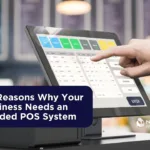Are Tips About to Be Tax-Free? What the “No Tax on Tips Act” Really Means for Businesses and Employees
The No Tax on Tips Act is gaining momentum in Congress and could significantly change how tipped income is treated at the federal level. However, before assuming that tips will be entirely tax-free, it is important to understand the specific limitations within the bill.
What’s in the Bill?
Tax Deduction for Tips: Employees in traditionally tipped roles, such as servers and bartenders, could deduct up to $25,000 in cash tips from their federal income tax.
Eligibility Requirements:
- Must earn under $160,000 per year
- Deduction applies only to cash tips reported to employers
Reporting Rules Stay the Same:
- Employees must still report monthly tips exceeding $20 to their employer, as required by IRS regulations
Payroll Taxes Still Apply:
- Even if cash tips are exempt from income tax under this bill, they are still subject to Social Security and Medicare (FICA) taxes
Time-Limited Benefit:
- The deduction would apply only for tax years 2025 to 2028
Non-Cash Tips Are Not Eligible:
- Tips received via credit cards or digital wallets are not covered under this proposed tax break
What This Means for Restaurant & Hospitality Businesses
If the No Tax on Tips Act passes, restaurant, bar, hotel, and salon owners will need to take several steps to ensure compliance and manage operational adjustments. First and foremost, they must continue tracking and reporting employee tips according to IRS regulations. This remains a legal requirement despite the proposed tax deduction.
Additionally, businesses will still be responsible for deducting Social Security and Medicare (FICA) payroll taxes from reported tips. Even though the bill allows a tax deduction for cash tips, employers must maintain accurate payroll records to ensure proper tax handling.
Another important consideration is updating point-of-sale (POS) systems and tip-tracking policies. Since the tax benefit applies only to cash tips, businesses will need to distinguish between cash and card-based gratuities. This will likely require adjustments to payroll processing systems and staff procedures.
Beyond system updates, employee education will be essential. Workers must fully understand the difference between reported and non-reported tips, as well as the eligibility requirements for the tax deduction. Business owners should implement training sessions to ensure staff can correctly report cash tips.
Finally, adjustments to bookkeeping and payroll systems will be necessary to maintain accurate records for eligible deductions. For small business owners, who often rely on third-party payroll services, this could introduce additional complexity. Clear policies, employee training, and possible software upgrades may be required to remain compliant and avoid reporting errors.
What This Means for Payroll Providers
For payroll providers, this legislation could lead to increased demand for tip reporting tools and compliance tracking services. As businesses work to differentiate between cash and non-cash tips, payroll companies may need to modify their systems to accommodate these changes.
Additionally, payroll providers may see a rise in requests for tax projection support from tipped employees. With new deduction opportunities, workers will seek advice on how best to manage their taxable income. This could create an opportunity for payroll services to offer additional consulting and support.
System integrations will also play a key role in adapting to this policy shift. Employers using POS or payroll software will need solutions that automatically flag and separate cash tips eligible for deduction. Payroll providers should anticipate updates in their platforms to meet these needs efficiently.
Beyond technical adjustments, education and advisory roles will become increasingly important. Employers unfamiliar with the bill’s requirements will rely on payroll providers to navigate the new federal rules. Companies in the payroll industry should proactively update their systems and train support teams to handle incoming questions if this legislation becomes law.
Final Thoughts
While this bill is designed to provide financial relief to workers in tipped industries, it does not eliminate the requirement to report tips. Additionally, it does not exempt tips from payroll taxes. Businesses in the hospitality sector must continue reporting tips and maintaining compliance with IRS regulations. Failure to do so could result in audits or penalties.
For restaurant owners, payroll providers, and hospitality professionals, understanding these requirements will be crucial for managing payroll and ensuring proper tax handling.
📎 Read the full article: No Tax on Tips Bill – NYT
LinkedIn Post for Restaurant Owners & Payroll Professionals
Congress is moving forward with the No Tax on Tips Act, which could allow tipped employees to deduct up to $25,000 in cash tips from federal income taxes. While this may sound like a major financial benefit, it’s important to understand what this means for businesses in the hospitality industry.
For Business Owners:
• Tip reporting is still mandatory under IRS regulations.
• Payroll taxes (FICA) will still apply—tips are not completely tax-free.
• POS and payroll systems must differentiate between cash and card tips to comply with the new law.
• Employees must be trained to correctly report their tips and understand what qualifies for the deduction.
For Payroll Providers:
• System updates will be necessary to help businesses track tax-deductible tips.
• Expect higher demand for tip reporting tools and employee tax advisory services.
• Educating clients on compliance changes will become an essential part of payroll services.
Key facts to remember:
• The deduction applies only to cash tips—card and digital tips are not included.
• Employees earning more than $160,000 per year do not qualify for the deduction.
• The benefit is temporary, lasting only from 2025 to 2028.
📎 Read the full breakdown here: No Tax on Tips Bill – NYT
CLICK HERE TO FIND MORE ABOUT OUR PROGRAMS
FAQ: Frequently Asked Questions
What is the No Tax on Tips Act?
The bill allows tipped employees to deduct up to $25,000 in cash tips from their federal income tax. However, it does not eliminate payroll taxes on tips.
Who qualifies for the tax deduction?
Employees in traditionally tipped roles (such as servers and bartenders) who earn less than $160,000 per year can claim the deduction.
Does this apply to all tips?
No, only cash tips reported to employers qualify. Credit card and digital tips are excluded.
Do employees still need to report their tips?
Yes, employees must continue reporting monthly tips exceeding $20 to their employer, as required by IRS regulations.
Are payroll taxes still deducted from tips?
Yes, Social Security and Medicare (FICA) taxes still apply to all tips, even if they are exempt from federal income tax.







